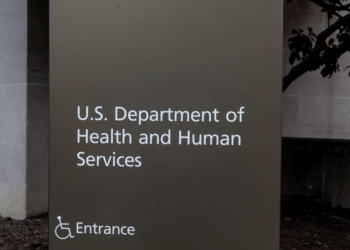The truth that we need to stop sinning is evident for Christians. We believe that God calls us to moral perfection, gives us the grace to achieve it, and gives us His Son as the supreme example of holiness. However, we still make excuses for sinful behaviors, or we find ourselves believing that God cannot perfectly sanctify us in this life. Therefore, this article will provide a roadmap to complete sanctification. Let us begin our journeys with certainty about four things.
We Must Know Four Things
To help us stop making excuses for our sinful actions, we must first know that God exists and is infinite perfection. Since God exists and is perfection itself, it logically follows that He creates us to be morally good (i.e., without moral defect).
Next, we need to know that Jesus is the eternal Son of God made flesh. He is our Redeemer. If we know this, then we see Jesus as the one Lord who gives us the sure teachings that lead to complete sanctification and eternal life.
Next, we must know that Jesus established the Catholic Church as His body (1 Cor. 12, RSVCE) and bride (2 Cor. 11:2) to bring Him to the world. This Church alone has the authority to loose and bind rules (Mt. 16:19, 18:18). Therefore, if the Church teaches something binding, then we must believe and obey it.
Finally, we need to know that God creates us to be like Him, albeit in a finite way. By way of syllogism, we can say that if 1) God is full of grace (because He is infinite grace); and 2) God creates us as images of Himself; then 3) He creates us to be full of His grace. One who is full of grace is perfectly sanctified.
From these four certainties, revelation, and the Church’s teachings, we find other truths that will perfect us if we submit to them. For humble submission to these truths, we need both grace and the faith that proceed from it.
Grace and Faith
Generally speaking, grace is favor, and God is grace. So, God favors us to be like Him, and His grace helps us to accomplish this. Grace that helps us to function as God creates us is called actual grace. With this grace we can turn to God in faith.
Turning to God in faith is completed in baptism, which is the moment sanctifying grace infuses our souls and washes away our sins. We call this grace sanctifying because it washes away sin (i.e., justifies), puts us in communion with God, and continuously sanctifies us as we cooperate with actual grace.
Living faith proceeds from grace and is completely dependent upon it. This kind of faith trusts in God and does His will with love and joy. A dead faith believes that God exists, but it does not seek to do His will (see Jas. 2:14-26). For more on grace and faith, please click here.
Unfortunately, sin disfigures our images and makes us children of Hell.
Hell Is Real
To avoid Hell, we need to know that it is real. Whenever we commit a mortal sin, we choose Hell as our inheritance. Therefore, we must take Jesus’s warnings about Hell seriously. Our avoidance of this place depends entirely on grace and our response to it. God gives us His strength to avoid Hell and choose Heaven, but He never forces us to choose one way or the other. Please read this article on Hell and this one on eternal security for more.
Mortal vs. Venial Sins
Next, we must know the differences between mortal and venial sins so that we can monitor ourselves and seek forgiveness according to God’s will. If we commit mortal sin, we reject grace, and we must go to Confession to receive God’s forgiveness. If we commit venial sin, we do not lose grace, but grace will stop growing in us until we turn to God with a contrite heart. Thus, we must form the habit of quickly identifying venial sins and repenting. For more on differentiating between these two types of sin, please check out this article.
Confession
The sacrament of Confession is a wonderful gift that Jesus gives us. He knows man’s frailty and our need for assistance, both divine and human. In the confessional, we receive God’s grace, penance, and the priest’s advice for turning away from sin. Confession returns us to communion with both God and His Church (see Rom. 12:5). For more on Confession, please read this article.
Also, we should make a habit of examining our consciences at least once a week. If we commit moral sin, we must go to confession as soon as possible. Even if/when we fall into venial sin, this sacrament will continue to give us grace. A priest once told me to go to confession every two weeks seeing the same confessor. It has been a game changer. I have recognized all kinds of venial sins in my life, and Confession has helped me to reduce them in both number and intensity.
Eucharist
We need to firmly and deeply believe that that the Eucharist is Jesus. Just as God has taken many forms to reveal Himself to us (e.g., fire, cloud, dove, and human), Jesus takes the form of bread and wine so that we can consume Him. By doing so, His life of grace enters us, and we grow in grace. Therefore, we must receive the Eucharist worthily at least once a week. Click here for more.
Replace Vices with Virtues
A working faith is a living faith. Therefore, we need to pray, fast, give alms, and study the Faith. We also need to give our time and talents to build up the kingdom. As we replace sins with good works, thereby better disposing our souls to more grace, God will fill us with grace.
The good works that we do out of love for God and neighbor are God’s works. If we understand this, then we should conclude that doing God’s works is a tremendous honor that we do not deserve. So, ask God to show you what He wants you to do, and He will reveal it to you. To understand how we merit additional grace, please click here.
Take Up Your Cross
Jesus said, “If anyone would come after me, let him deny himself, and take up his cross, and follow me” (Mt. 16:24). Accordingly, Jesus calls us to fight the fight. He wants us to use suffering to grow in holiness. As we make a habit of suffering gracefully, our souls will become better disposed to additional grace. For more on this topic, please click here.
Know Not to Sin
Finally, we must know that we must not sin. We often excuse our sins, especially the smaller ones. However, these excuses only exacerbate the problem. If we cooperate with grace by training ourselves to be vigilant, we will more readily identify sins and more quickly turn to God for forgiveness. As we do this, a habit will form, and our sins will decrease until all sins and the inclinations to them cease.
Pitfalls
Overcoming sin and the inclinations to it, while simultaneously doing God’s will, is a battle. And, as it is with all battles, giving up can be a real temptation. However, we must know and trust that God helps us to win these battles and, ultimately, the war. Trusting in God will also help us to avoid dejection, a state of mind that makes the road to success very difficult.
Another pitfall is developing a scrupulous conscience. This conscience feels unforgiven even though God has forgiven the person’s sins. The key to defeating a scrupulous conscience is finding joy in doing God’s will and knowing that you are making progress. If you have a scrupulous conscience, I highly recommend this Catholic Exchange article.
Image from Wikimedia Commons














